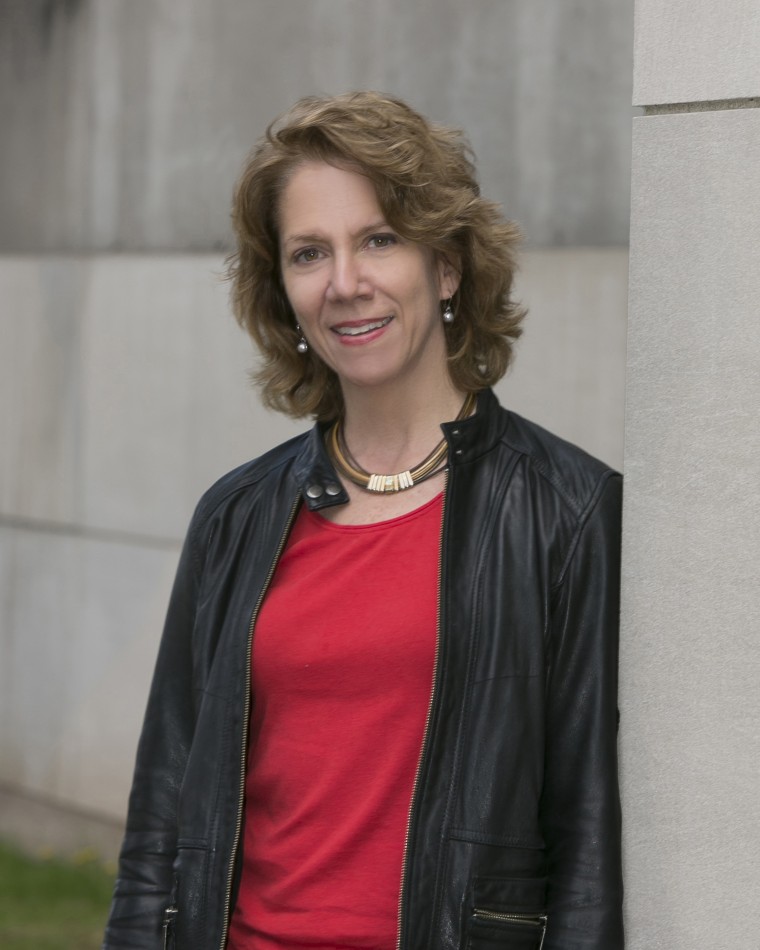"As far as relationships go, parasitism may seem particularly selfish: one partner benefits at the expense of another. Many parasites even alter the behavior of their hosts to get what they need. Parasitoids are similar, but they usually spend a significant portion of their lives living inside or on their hosts' bodies and controlling them from the inside-out, before ultimately killing and often consuming them." So begins an article in Science Daily featuring research by Melissa Bernardo, a PhD student in biology working with Michael Singer, associate professor of biology, associate professor of environmental studies. Bernardo has been studying how parasites and…
Center for the Arts Director Pamela Tatge '84, MALS '10, P '16, will leave the university in April to serve as executive director of Jacob’s Pillow Dance Festival. There, she will set the artistic vision and strategic goals for the organization, including programming one of America’s longest-running international dance festivals, and overseeing education, preservation, and audience engagement programs, as well as marketing and development. For the past 16 years, Tatge has overseen robust programming in music, dance, theater, and visual arts at the CFA. She has supported the realization of faculty and student work in the arts and spearheaded the development of the university’s…
Professor of Religion Elizabeth McAlister is the author of a new paper, "The Militarization of Prayer in America: White and Native American Spiritual Warfare" published Jan. 4 in the Journal of Religious and Political Practice. In the article, McAlister examines how militarism has come to be one of the generative forces of the prayer practices of millions of Christians across the globe. She focuses on the articulation between militarization and aggressive forms of prayer, especially the evangelical warfare prayer developed by North Americans since the 1980s. Against the backdrop of the rise in military spending and neoliberal economic policies, spiritual warfare evangelicals…
On the release of the U.S. Department of Agriculture's latest dietary guidelines, The Washington Post looks back at the man responsible for starting it all: William Olin Atwater, Class of 1865 and later a chemistry professor at Wesleyan, who authored the very first dietary guidelines in 1894. According to the Post, at that time, the U.S. government provided basically no funding into nutritional research, and good nutrition meant simply getting enough to eat. But Atwater was a firm believer that nutrition was about more than simply staving off hunger. He framed the effort to figure out what foods are good for you as a moral…
Richard Grossman, professor of economics, and Masami Imai, professor and chair of economics, professor of East Asian studies, are the authors of an article published January 2016 in Explorations in Economic History. The article is titled "Taking the lord's name in vain: The impact of connected directors on 19th century British banks." Grossman and Imai considered the appointment of prominent, well-connected individuals (former members of Parliament and lords) to the boards of directors of banks in pre-World War I Britain, and investigated whether their presence enhanced equity value for bank shareholders. Surprisingly, they found that these individuals actually had negative effects on bank equity returns. The…
Gary Yohe, the Huffington Foundation Professor of Economics and Environmental Studies, appeared on the RT show "Boom Bust" to discuss the impact of climate change on business and the economy. (Yohe's interview begins at 3:45). He was asked what sectors of the economy are being affected the most by the forces of climate change. "Agriculture comes to mind. It's not just hurricanes and extreme precipitation events—although that seems to be happening along the East Coast. Any [real estate or] infrastructure that's located near the coast line or near a river, for that matter, is in increasing vulnerability. But it's more than that. It's [...] agriculture,…
A hundred years ago, Christmas in Russia looked a lot like Christmas in America, with trees, presents and twinkling lights. All that changed with the Russian revolution, Assistant Professor of History Victoria Smolkin-Rothrock told NPR in an interview about the history of the Yolka, or New Year's tree. "The tree comes to be seen as a symbol of both the bourgeois order, which is one kind of class enemy, and of religion in particular, which is another kind of class enemy," explains Smolkin-Rothrock. "There are very explicit statements that essentially unmask the Christmas tree for the class symbol that it is. It becomes clear that one does not…
The campaign season so far has seen a significant increase in the volume of GOP presidential ads, and an explosion in advertising by super PACs and other outside groups. Outside groups sponsored 81 percent of ads between January 1–December 9, 2015—a 71 percent increase over 2011, and 12,000 percent increase over 2007. This was the finding of an analysis by the Wesleyan Media Project, its first of the 2016 election cycle. The "remarkable growth in campaign activity by independent groups" it found was covered by The Washington Post, NPR, The Wall Street Journal, Reuters, USA Today, Vox and others. Notably, the report found little…
The historic global deal on climate change reached by 190 countries in Paris will help the economy, not hurt it as critics argue, writes Huffington Foundation Professor of Economics and Environmental Studies Gary Yohe in an op-ed in The Hartford Courant. "The evidence in the peer-reviewed economic literature, as well as real experience around the world and in the United States, shows that climate action not only protects public health by reducing pollution, but also protects the economy from extreme weather shocks and other complications that have and will arise from a changing climate. The sooner we act, the more money…
Professor and Chair of Religion Mary-Jane Rubenstein was a guest on PRI's "Studio 360" to discuss the history of scientific thinking on multiple universes. Though scientists today are becoming increasingly interested in thinking about multiple universes, the idea actually dates back about 2,500 years to the Atomist philosophers of Ancient Greece. Rubenstein discussed how the Atomists arrived at a theory of multiple universes: For the ancient Atomist philosophers, the most desirable thing about what we're now calling the multiverse was that it got rid of the need for a god. If it is the case that our world is the only…
A collaborative project by Assistant Professor of Music Roger Matthew Grant was listed in New York Times' co-chief art critic Holland Cotter's Top 10 list of Best in Art. Grant served as the dramaturg and also performed in the installation of "The Magic Flute," a revamped version of Mozart's original at New York University's Steinhardt School of Culture, staged by 80WSE Gallery and the Cheap Kollectiv of Berlin. "This was theater for mind and senses," writes Cotter, describing it as "packed with magic." Part one of "The Magic Flute," an opera in six steps, was in open rehearsals Dec. 1–5. Part two, a film…
Professor of Anthropology Gina Athena Ulysse is the author of two new essays on The Huffington Post. In "Pedagogies of Belonging," she writes about her experience working with students of color as they face the realities of structural racism, and she challenges institutions to go beyond rhetoric, to face up to the difficult challenges of moving onto a path of greater belonging. The essay begins: There is a conversation Black faculty often have with Black students that we rarely mention in public, let alone in mixed company. The tone of this exchange differs to some extent if the student are U.S.…




